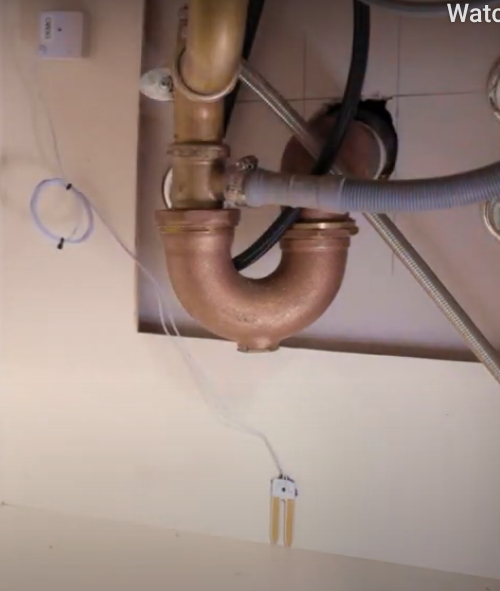Strike one for The Alexander came in 2017. A real estate agent forgot to close a balcony door at the Upper East Side condominium, causing a pipe to freeze and burst. Twenty units flooded.
Strike two came in 2022 when another pipe burst. Only 13 units were affected, but repairs cost about $3.5 million.
When the insurance renewal came, the condo board learned you don’t get three strikes.
“They jacked up our rates from $150,000 a year to $850,000 a year,” said Neal Davis, the board president. “We found out about the increase the day the policy expired. We had no choice but to sign it.”
Insurance premiums have soared across the board, but properties with multiple large claims have their own category of shame — what the industry calls “sick buildings.”
Their challenge is not about getting an affordable premium, said Craig Barnet of MSG Risk Management and Insurance Consulting; “It’s being able to get insurance in the first place.”
Just like certain carriers avoid high-risk markets, top insurers don’t cover sick buildings, forcing owners to alternative carriers with higher costs and poorer service.
“We were in the excess insurance market,” Davis said of the Alexander, a 26-story, 75-unit building at 250 East 49th Street. “No one wanted to cover us.”
His board hired a new insurance broker and took several steps, such as amending the bylaws to make individual owners responsible for repairing their units in the event of a large loss.
Most importantly, the building had to reduce the chance of another disaster. Fortunately, technology has advanced greatly in that area.
At a co-op expo, Alexander staffer Safet Rexha looked at various systems and recommended the board try ProSentry, which sells detectors that report just about everything that can go wrong: water leaks, gas leaks, extreme temperatures, high humidity, even broken steam traps.

When a sensor detects a problem, it alerts a central monitoring service and a human calls the superintendent with a specific message like, “There’s a leak under the washing machine in Apartment 4J.”
“The average water leak in New York City [costs] $65,000 to $90,000, and that can be stopped by a $70 sensor,” said ProSentry co-founder John Rusk.
ProSentry sells the sensors (a one-bedroom might need four or five) and charges $1 per sensor per month for monitoring. The sensors, which look like thin strips and are placed perpendicular to floors, are connected to the internet via LoRaWAN, an energy-efficient, long-range network that, unlike Wi-Fi, only needs one gateway for every two or three floors. Rival firms also use LoRaWAN.
Escaping the blacklist
The Alexander bought about four sensors per unit. Davis said the condo’s new insurance broker went to carriers with a message: “We’ve done our best to mitigate any kind of risk.”
Its next premium was $300,000 cheaper.
Soon after the system was installed, a balcony door was left open for several days. When the temperature in the unit fell to 40 degrees, ProSentry called the building staff.
“This entire system probably just paid for itself with just that incident,” Davis said.
Problems have so far been minor. A house cleaner occasionally sets off a leak sensor by mopping or throws it away because it looks like a dropped popsicle stick. After about 10 years, the sensor batteries will expire.
Competition in leak detection is intensifying, with companies such as The Detection Group and Eddy Solutions scrambling to sign buildings up. It is unclear how many buildings have systems installed, but much of the small-owner market appears to be untapped.
“When I look across the landscape of the five boroughs, very few [buildings] wouldn’t benefit from it,” said Barnet, the insurance consultant. “We’re getting to the point where insurance companies will require these systems whether or not you have a water leak issue.”
Flood of information
ProSentry’s Rusk got into the business by accident. A New York City contractor for 39 years who runs an eponymous renovations company, he knew from experience the havoc that water can wreak on a building. Then it happened to him.
His upstate house sustained extensive damage from a water leak that went undetected for four days. His insurer, Chubb, subsequently gave him a $5,000 credit for a smart valve.

He later happened to sit next to Chubb executive Amy McNeece Mitchell at a gala for filmmaker Steven Sondheim. She was involved in the insurance giant’s “War on Water,” an effort to cut down on water damage, which was the third most common claim and yielded an average loss of $89,000 for commercial clients.
The two spent most of the gala talking about leak prevention.
“I learned that there were water leak detection systems, but they had no luck getting it into multi-tenant buildings,” Rusk said. “I realized that if I could come up with a system for a whole building … I could have an amazing business.”
Chubb was already giving insurance discounts to single-family homes with automatic water shut-off systems, but large apartment buildings don’t use them. Landlords are not going to cut off every tenant’s water every time Mrs. Jones’ overzealous mopping triggers a sensor.
Rusk sought to persuade Chubb that 24/7 monitoring plus immediate calls to superintendents was good enough. “Show us the data and we’ll consider it,” the company told him. He did, and Chubb got New York state regulators to approve an 8 percent premium discount for ProSentry users. Rusk is trying to get other major insurers to do the same.
Proptech firms that sell and monitor gas detectors are getting a big boost from the city’s Local Law 157, which requires gas detectors above apartment buildings’ gas stoves and dryers beginning May 1.
“Because of the gas law, we’re talking to tons of buildings now,” said Rusk. “Then we talk about water.”
Read more



